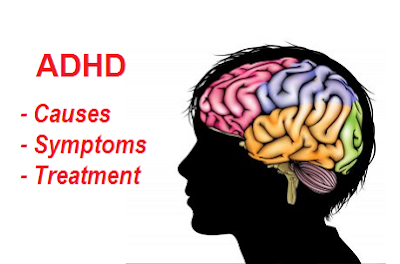
Parents of children with Attention Deficit Hyperactivity Disorder (ADHD) need to accept and control their own emotions in order to treat their child's condition. To do so, they may consider seeking help from a healthcare provider or by addressing the challenges associated with ADHD. However, they must be honest about their own challenges and learn to deal with their own emotions. Humor is often a great deflector of negative feelings.
Individuals with ADHD tend to be restless, impulsive, and unable to sustain focus on tasks. They often fidget when seated, leave their seats inappropriately, and interrupt others. They may also take action without thinking about the consequences of their actions. This disorder can lead to anxiety, sleep disorders, and a lack of self-control. Symptoms can last for years, causing the person to miss out on important aspects of their lives.
Many people with ADHD are naturally inattentive, impulsive, and hyperactive. Young children are more prone to these symptoms than adults, but it is important to note that ADHD affects a child's behavior. Most healthy children have a short attention span. On the other hand, older children and teenagers have long attention spans. It is also important to note that the activity level of a healthy child varies significantly.
When a child is diagnosed with ADHD, they may develop negative attitudes towards the disorder. In addition to treating your child's ADHD, parents may also need help managing their child's behavior and guidance on the website https://alfaman.com.mx/. This specialized help may be needed to educate them about the condition and develop new skills and attitudes that will benefit the child and family. The benefits of a mental health professional for children with ADHD are worth the investment.
One of the most significant benefits of an ADHD treatment plan is the ability to live a more focused and organized life. Often these children will be more likely to succeed in school if they feel more fulfilled. Regardless of the type of treatment they seek, they may benefit from a treatment plan that will help resolve their ADHD symptoms. In most cases, they will receive medications that will help them live a normal life.
In addition to medications, people with ADHD have difficulty organizing and keeping their belongings in order. They often leave their seats in inappropriate places and fidget while sitting. They may also be prone to forgetfulness. It's important to remember that treating ADHD can help them focus better. The symptoms of Attention Deficit Disorder and Hyperactivity Disorder are very similar and should not be confused with other disorders. Therefore, people with this disorder need to be diagnosed to determine whether the symptoms they experience are a result of ADHD.
Symptoms of Attention Deficit Hyperactivity Disorder include problems organizing activities and exhibiting a dislike for mental effort. Additionally, the symptoms of ADHD include excessive fidgeting, squirming, and climbing stairs. In addition, they may be unable to sit still for a long period of time. If the symptoms persist, it's time to seek help. If you suspect that your child has ADHD, you should consult with a psychiatrist immediately.
Symptoms of Attention Deficit Hyperactivity Disorder are common in many people. They include difficulty in paying attention, impulsivity, and difficulty following instructions. As a result, adults with ADHD are at risk of unstable relationships, poor performance at work, and low self-esteem. During their adult years, many of these symptoms will remain untreated. Moreover, these symptoms may worsen as the individual ages.
A child with ADHD is usually characterized by excessive movement, fidgeting, and a dislike for mental effort. They will fidget even when they are seated, and they will frequently leave their seats to move around. They will also often interrupt other people and disrupt conversations. In some cases, hyperactivity leads to an inability to control impulses and act in the correct way. For example, they may lose track of time, squirm excessively, or blurt out unrelated thoughts.
A child with ADHD will most likely show signs of impulsivity and inattentiveness. In addition, the disorder can also be characterized by a combination of impulsivity and inattentive behavior. These symptoms are common in children with ADHD and can cause significant problems in everyday life. It is important to seek help for your child if it is causing your family distress or affecting your child's learning.